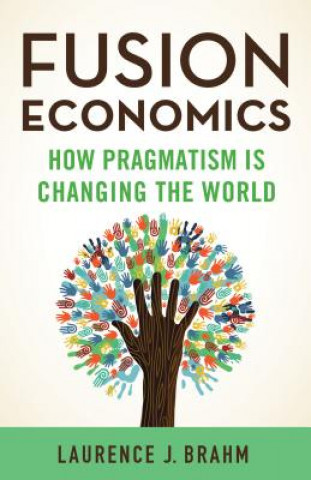
Kézbesítés
Vásárlási tanácsadó





Nem vált be? Semmi gond! Nálunk 30 napon belül visszaküldheti
 Ajándékutalvány
bármilyen értékben
Ajándékutalvány
bármilyen értékben
Ajándékutalvánnyal nem nyúlhat mellé. A megajándékozott az ajándékutalványért bármit választhat kínálatunkból.
Fusion Economics
 Angol
Angol
 139 b
139 b
30 nap a termék visszaküldésére
Ezt is ajánljuk


In Fusion Economics, author Laurence Brahm explores how the world's social economies can come together to lift the world out of poverty. He approaches economics from a social science angle, drawing on the principles of social entrepreneurship instead of the more technical aspects of mathematical econ. Though the subject matter might initially seem complex, Fusion Economics takes the form of a narrative travelogue and as such serves as an accessible treatise on social economics. In the book, Brahm travels from the US to China and through Asia where he sees a transformation taking place before his eyes - developing nations creating an economic marketplace from the bottom up, incorporating the best and most effective elements from each system (capitalism, socialism, and communism) and, in turn, influencing the existing political models in place in these countries. Social entrepreneurs, activists, and NGOs in the BRIC countries have already started driving this new global consensus, and according to Brahm we must continue to challenge our values and change our economic organization if we are to achieve peace and prosperity in the future. Brahm takes readers through various case-studies and real-world examples of sensible, holistic economic policy that responds to conditions on the ground rather than imposing a theory or ideology that may not match up with what people actually need. People in the street, Brahm writes, may have clearer answers than the economists in multilateral institutions coming to advise them. They don't need, and will likely be hurt by, models cooked up by outsiders in ivory tower university classrooms or sterile think tanks. Brahm illustrates this point by recounting stories from his travels around the world; he describes local wisdom, grassroots activism, and stories of successful, bottom-up economic policy formation. And his case studies do come together to illustrate how local wisdom often really does know best, whether one lives in a corrugated hut in Bangladesh, a working class apartment in Athens or a suburban ghetto in Detroit. Looking within one's country, neighborhood and culture is the first step, Brahm writes, to a suitable and sustainable economic policy. The book brings a human dimension to big ideas. Brahm tells his tale as a journey across continents, giving readers a glimpse of what it's like to be on the inside, as a witness to history and social change. Brahm uses straightforward language to demolish ivory tower edifices of theory. He shows ordinary people that they don't need a PhD to understand economics; that common sense is enough. With economic issues at the forefront of news and commentary, this is a powerful message. For America, this book is particularly timely. In his last State of the Union Address, President Obama outlined the perils of climate change and the need for green growth to create jobs in America. Moreover, he noted that China is already driving ahead of America on green economics. As one of it's top initiator, Brahm can explain China's green growth blueprint and explain how America can do it even better, by leading with research and development and then scaling it commercially.
Információ a könyvről
 Angol
Angol
Kategória




 Hogyan vásároljunk
Hogyan vásároljunk
























